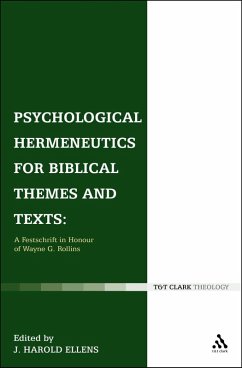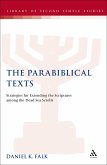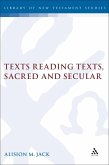For centuries scholars have been developing ways of studying the bible, through exegesis, historical critique, literary critique, form criticism, and narrative analysis. During the last half century new theoretical approaches have come to the fore. Psychological Hermeneutics takes as its starting point the text itself, and its context - the dynamics of the human document created, the person(s) who authored the text, the original audience for which it was intended, the subsequent audiences to which it spoke, and the factors that were at play behind, in, and in front of the text. The contributions to this volume examine the growth of Psychological Hermeneutics as a discipline within biblical studies. The book is structured in two parts. The first assesses the approach taken by Wayne G. Rollins, one of the pioneers of this field. The second provides applications of Rollins' approach. The result is a book which presents a state-of-the-art survey of the discipline and development of Psychological Hermeneutics over the last thirty years.
Bitte wählen Sie Ihr Anliegen aus.
Rechnungen
Retourenschein anfordern
Bestellstatus
Storno









